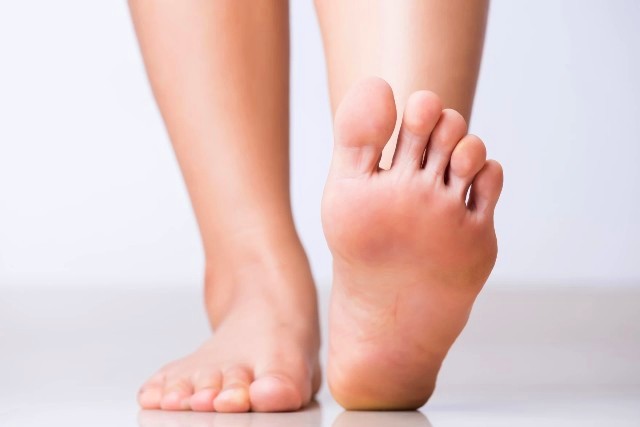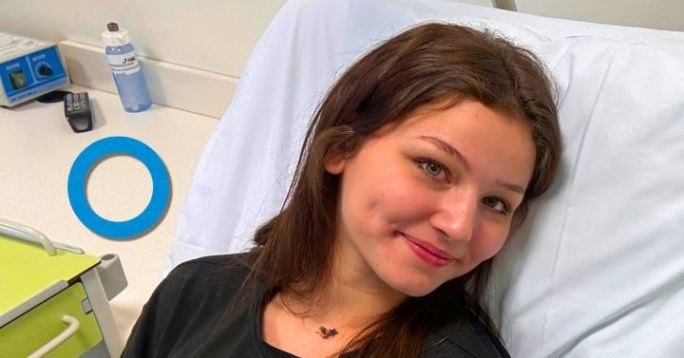Summer brings sunshine, movement, and lighter clothing — but also certain challenges for people living with diabetic peripheral neuropathy.
High temperatures, increased activity, and reduced sensation in the feet can raise the risk of injuries, infections, and complications.
The good news? With timely advice, a personalized routine, and targeted support, summer can be safe, active — and carefree.
Why Extra Foot Care Is Needed in Summer
In people with neuropathy, nerve damage most often affects the feet, reducing the ability to feel pain, heat, or cold.
As a result, burns, blisters, or small injuries can go unnoticed and develop into serious wounds.
Summer makes things worse — heat and sweating encourage fungal infections, and improper footwear increases friction and injury risk.
Common Summer Challenges for Neuropathic Feet
- Hot surfaces can cause burns that you may not feel right away
- Increased moisture creates a perfect environment for fungal infections
- Dehydration can worsen neuropathy symptoms
- Open-toe footwear raises the risk of injury

Key Summer Foot Protection Tips
These simple but essential habits can help you avoid complications:
- Never walk barefoot — not indoors, not on the beach, not on the lawn. Hot surfaces like asphalt, sand, or concrete can cause severe burns. Also watch out for sharp objects that can cause serious injury.
- Inspect your feet daily. Look for signs of redness, wounds, bruises, swelling, or cracked skin.
- Wear breathable shoes and socks made of natural materials like cotton, silk, or merino wool.
- Apply moisturizing cream to your feet, but avoid the areas between your toes to prevent fungal infections.
Summer Footwear – Your Daily Partner
Choosing the right summer shoes can make the difference between a comfortable and troublesome season.
Ideal summer footwear:
- Closed toe area for full protection
- Natural materials (leather, canvas) that breathe
- Soft interior without seams
- Good arch support
- Adjustable straps instead of rigid closures
Avoid:
- Flip-flops and fully open sandals
- Synthetic, non-breathable materials
- Tight shoes that squeeze the toes
Don’t Forget Sunscreen – Even on Your Feet!
Feet are often forgotten when applying sunscreen, although they are just as exposed to UV rays.
Apply SPF 30+ to the entire foot regularly, reapply every two hours or after swimming, and avoid sun exposure between 10 a.m. and 4 p.m.
Summer Boosters for Happier Feet: Nutrition, Hydration, and Supplements
A healthy diet supports a healthy nervous system:
- Focus on fresh, seasonal fruits and vegetables: watermelon, cucumbers, tomatoes, berries
- Include lean proteins: fish, eggs, dairy, and chicken support cell repair
- Don’t forget omega-3 fatty acids (fish, flaxseeds, walnuts), which have anti-inflammatory and nerve-regenerating effects⁵
Hydration:
- Drink at least 8 glasses of water per day
- Avoid alcohol and caffeine — they dehydrate the body
- Diluted natural juices can be a good electrolyte alternative
Extra Summer Safety Measures
- Exercise during cooler hours — in the morning or evening
- Store medications and supplements properly — insulin, pills, and vitamins are heat-sensitive; keep them in a cool, dry place away from direct sunlight
Supplements – Small Help That Makes a Big Difference
People with diabetic neuropathy often have specific nutritional needs, especially for nerve health and regeneration.
One key nutrient is vitamin B12, as a deficiency can worsen symptoms like tingling and numbness.
This is particularly important for people taking metformin, which can reduce B12 absorption.

Another powerful ally is omega-3 fatty acids, which have anti-inflammatory and neuroprotective effects — especially helpful in diabetic neuropathy.

Reminder: How to Properly Check Your Feet
The ideal daily inspection includes these steps:
- Well-lit area (natural or artificial light)
- Handheld mirror or help from someone else
- A chart to record changes (swelling, redness, wounds)
- Risk marking and follow-up with your doctor
Do this every evening — just a few minutes a day can prevent long-term complications.
What to Do If You Notice a Problem
Early response is key to avoiding complications.
Warning signs that require immediate attention:
- Any wound that won’t stop bleeding
- Signs of infection (redness, warmth, pus)
- Skin discoloration
- Severe pain or complete loss of sensation
- Elevated body temperature
Basic first aid steps:
- Clean the wound with a mild antiseptic
- Cover with a sterile bandage
- Elevate the foot
- Contact your doctor immediately
Remember: Prevention starts at home.
Small daily habits and conscious foot care make a big difference.
And most importantly — if you notice any changes or wounds that aren’t healing, contact your doctor right away. Acting quickly can prevent serious complications.
Author: Helena Orehovački, mag. pharm.
Pharmacotherapeutic Counseling – Zagreb Health Center






